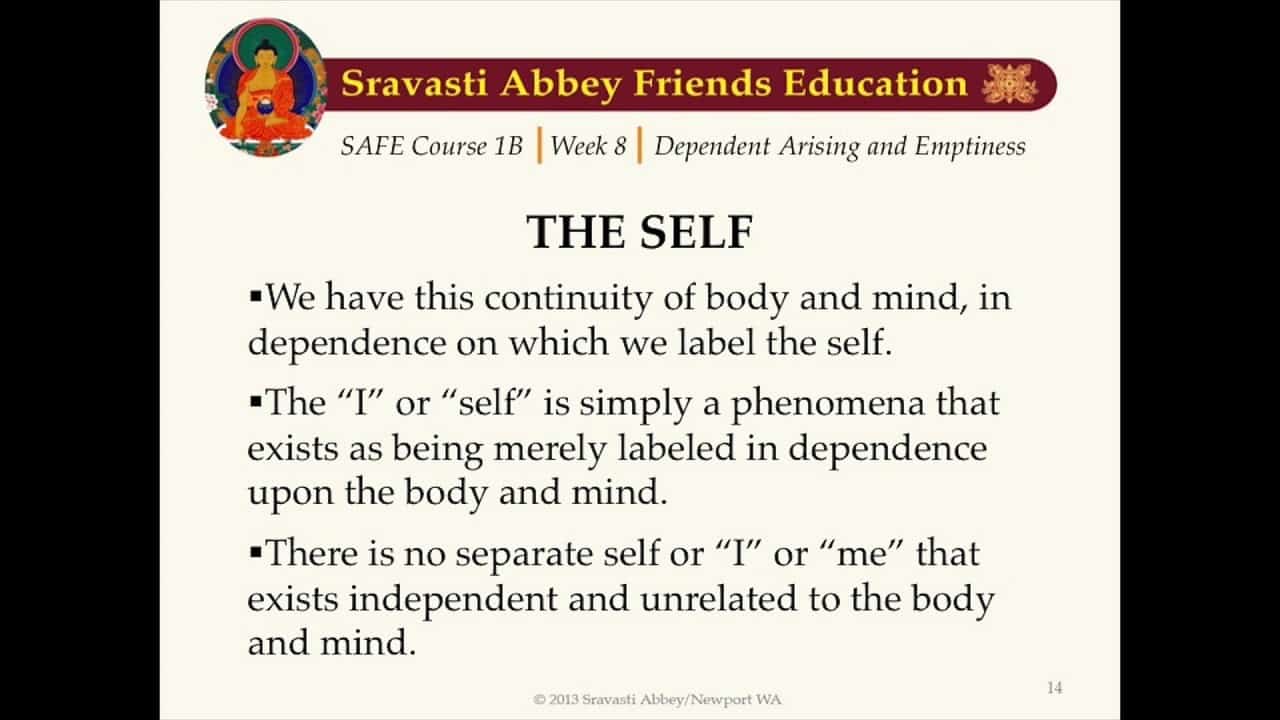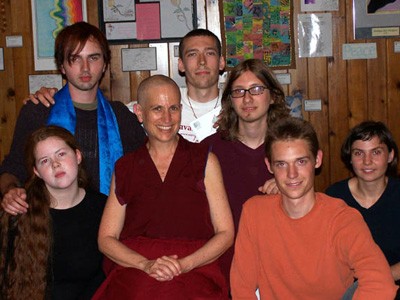Karma and decision-making
Part of a series of talks given during the annual Young Adult Week program at Sravasti Abbey in 2006.
Characteristics of Karma
- Understanding what carries karma from life to life in the absence of a self
- The four main characteristics of karma
Young adults 05: Karma 01 (download)
Choices and results
- Being aware of collective and individual karma in making decisions of body, speech, and mind
- Points to consider when making decisions
Young adults 05: Karma 02 (download)
Questions and answers
- The indestructible drop
- Purification practice
- Karmic connections
Young adults 05: Q&A (download)
Excerpt: Handling bad times
When karma ripens in a situation, we create new karma by our response to that situation. That’s why when we go through rough times in our life due to the ripening of some negative karma, it’s very important to work with our mind and stop it right there and don’t create the causes for more suffering. We transform our mind instead and start creating the causes for happiness.
Excerpt: Be very careful about what kind of groups we join
When we join a group and we condone the purpose for which the group came together, then we will accumulate the karma for all the actions that the group does that correspond with the reason for which the group was formed.
For example, our group was formed for the purpose of learning the Dharma, transforming our minds, benefiting sentient beings. We all came together with that motivation, condoning that motivation for the formation of the group. That means for every virtuous action that anybody in the group does, we create that collective karma with them.
…We have to watch what groups we take part in, and if sometimes we find ourselves part of a group but we don’t agree with the purpose for which that group was formed, we have to be very clear in our mind that we don’t agree with the purpose of this group, e.g., when our country sent out the army to kill the people of other countries.
Excerpt: Be careful about what we rejoice at
We train our mind to look at people’s virtues, people’s talents, people’s abilities, people’s good qualities, people’s good deeds, and rejoice at them. We train our mind like that, because that’s a way for us to create a lot of positive karma individually. It also counteracts the tendency to rejoice at other people’s misfortune or negative karma. We have to guard our mind very carefully that way.
Excerpt: Be content with the decisions we make
When you make a decision, be content. Don’t have this mind that says, “If only I had done x, y, z,” because that’s just self-torture.
Transform mistakes and grow from the experience
If you figure out later that you made the wrong decision, then learn from your mistake and just say, “OK, what was going on in my mind that resulted in me making this decision? How did I get into this situation? How can I learn from it so that in the future, I don’t do the same thing again?”
In that way, you learn from your life experiences. Rather than looking back on the past and having all this guilt, remorse and regret, feeling awful and carrying around this bag of bitterness your whole life, you transform them into something conducive for your growth.
Purify if we need to
And if you need to do some purification, purify. But really try not to collect a lot of resentment and grudges and bitterness. I call it “staying on top of your life.”
Get on with our life with freshness and buoyancy
If you’re always able to look at your life and learn from your experience, then there’s always some kind of buoyancy in your life … You’re able to go on with your life with some kind of freshness and feeling of joy.
Excerpt: We don’t make ourselves suffer in order to purify
We never wish nor deliberately cause suffering upon ourselves or anybody else. But when suffering comes our way, we see it as the ripening of a negative karma that would have otherwise ripened in a much more horrible result.
You still use medicine
You still use medicine when you are sick; you don’t go on some big trip of, “Oh, I’m purifying negative karma, so I’m not going to use any medicine.” No, that’s not too smart. Rather, it has to do more with our way of viewing things.
Venerable Thubten Chodron
Venerable Chodron emphasizes the practical application of Buddha’s teachings in our daily lives and is especially skilled at explaining them in ways easily understood and practiced by Westerners. She is well known for her warm, humorous, and lucid teachings. She was ordained as a Buddhist nun in 1977 by Kyabje Ling Rinpoche in Dharamsala, India, and in 1986 she received bhikshuni (full) ordination in Taiwan. Read her full bio.


